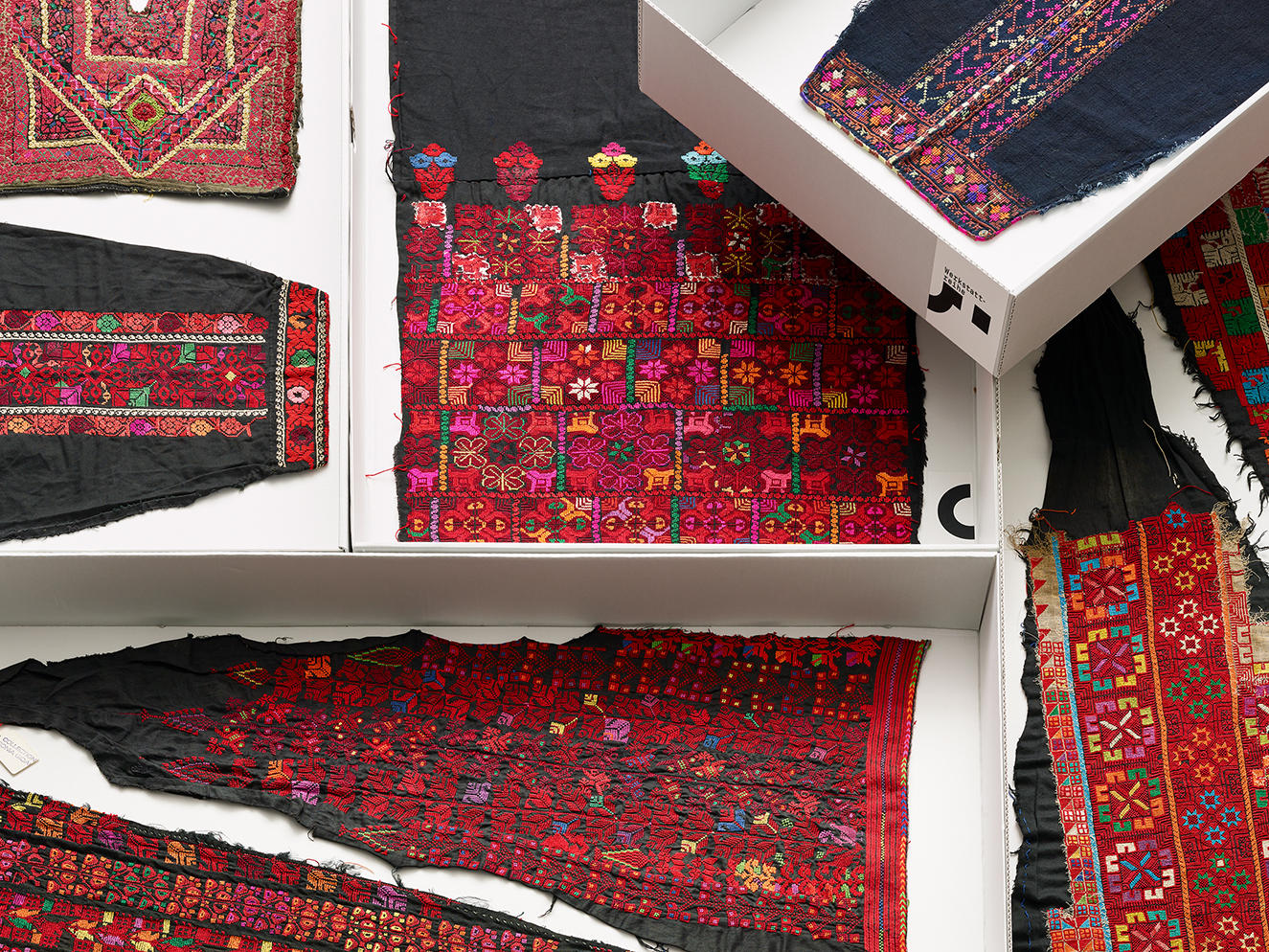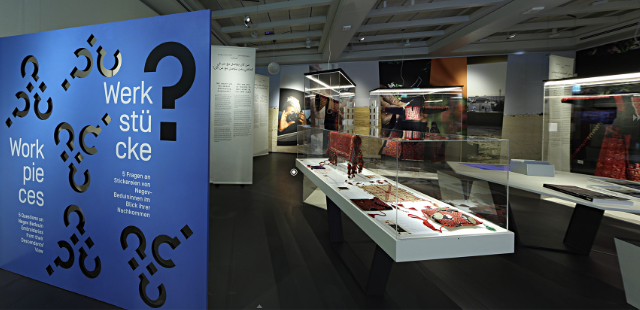Workpieces? 5 Questions on Negev Bedouin Embroideries from their Descendants’ View
24 November 2023 to 15 September 2024
"It should not go unmentioned that ethnographic collections documenting Bedouin material culture are extremely rare. Simple everyday objects have received little attention from collectors, except perhaps for jewellery and embroidery." This is how, in 1984, the Ethnographic Museum justified a loan to purchase an extensive collection of everyday Bedouin objects from the Negev Desert. The collection includes numerous colourful embroideries, including ornamented women's garments, handkerchiefs, patchwork bags and scraps of clothing. Some embroideries are completed, others remain unfinished, yet each is unique – workpieces?
The exhibition presents a selection of embroideries and opens up a wide range of perspectives on the collection: How does context shift the value of objects? Who ascribes meaning to what? Whose expertise comes to light? In what form? And whose knowledge remains unnoticed? This collection carries meaning for the community of origin and their descendants, including the diaspora in Switzerland. How do they look at the embroideries today? What happens by threading together these different perspectives?

Workspace Series – 5 Questions on the Collections
What kind of museum does the future need? We turn to the collections and their creators with long-lasting and new questions, for example: "How and why did the objects come into our museum?" We think of the museum as an open workspace, a space for collaborative exploration and research. Along with an exhibition series, we offer insights into our work. The exhibition "Workpieces?" follows "Honeymoon?", "Business Idea?", "Looted Goods?" and "Mask Dances?" as the fifth and final opening in this series.
